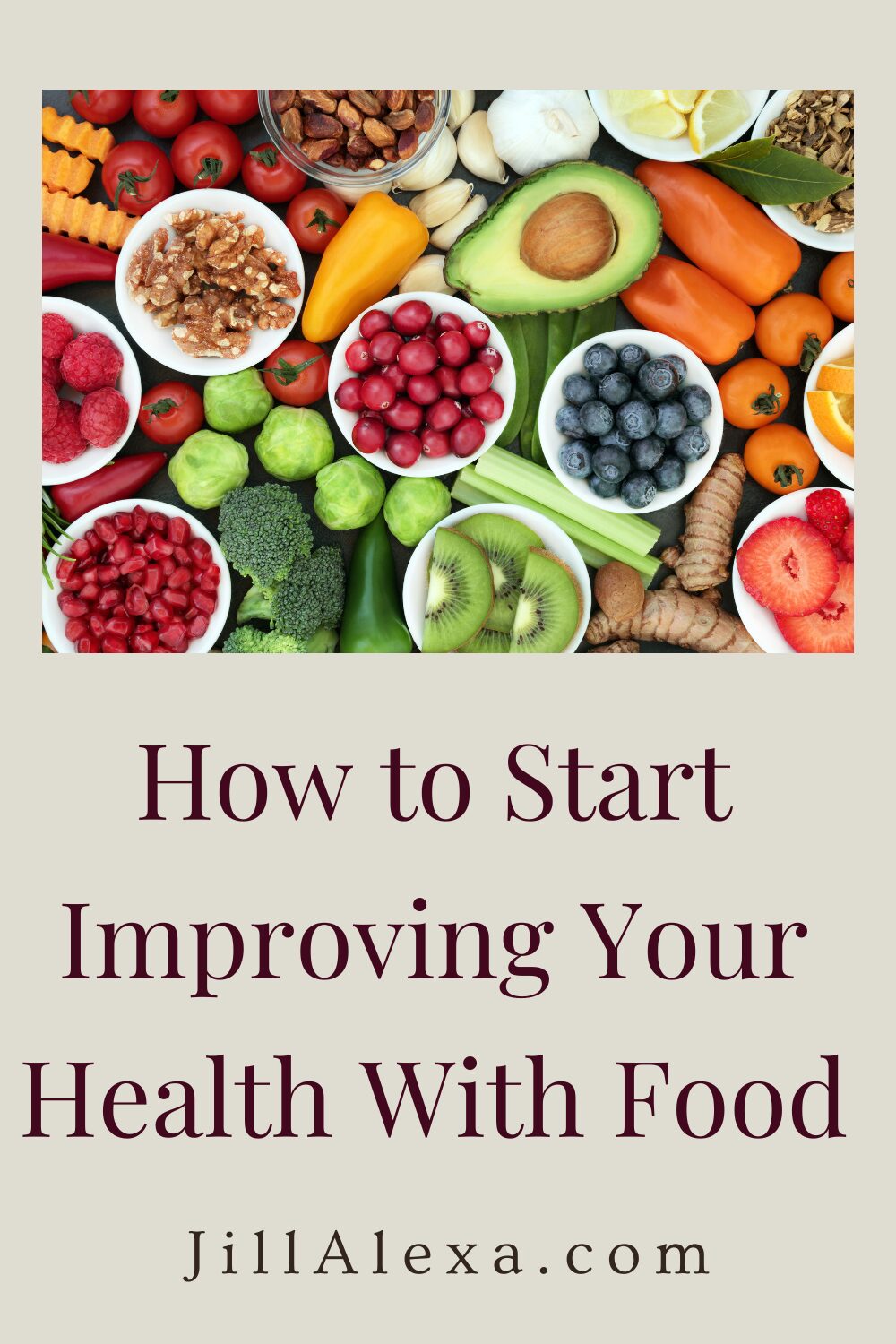Improving Your Health with Food | JillAlexa.com
Improving your health through food is a journey of making conscious dietary choices that not only satisfy your taste buds but also nourish your body.
It’s about understanding the impact of what you eat on your physical, mental, and emotional well-being.
Here’s a detailed guide on how to start this journey towards a healthier you through the power of food.
How to Start Improving Your Health With Food
Photo by Lisa Fotios from Pexels
5 Clever Ways to Start Improving Your Health with Food
1. Understanding the Basics of Nutrition
The first step in improving your health with food is to understand the basics of nutrition. This involves learning about the different nutrients your body needs, such as carbohydrates, proteins, fats, vitamins, and minerals, and the roles they play in your health. Carbohydrates are your body’s primary energy source, proteins are crucial for repair and growth, and fats are important for brain health, energy, and vitamin absorption.
It’s also essential to understand that not all food sources are created equal. For instance, complex carbohydrates like whole grains are more beneficial than simple carbs found in sugary snacks. Similarly, unsaturated fats (found in olive oil and fish) are healthier than saturated fats (found in butter and red meat).
 2. Incorporating a Variety of Whole Foods
2. Incorporating a Variety of Whole Foods
One of the most effective ways to improve your health with food is to eat a variety of whole foods. Whole foods are those that have been processed or refined as little as possible and are free from additives or other artificial substances. This includes fruits, vegetables, whole grains, lean proteins, and healthy fats.
Each type of whole food provides different nutrients, so eating a wide variety ensures that you get a well-rounded intake of vitamins, minerals, and other nutrients. For example, leafy green vegetables are rich in vitamins A, C, and K, while berries are high in antioxidants, and nuts and seeds are good sources of healthy fats and protein.
3. Reducing Processed and High-Sugar Foods
An important aspect of improving health through food is minimizing the intake of processed and high-sugar foods. These foods are often high in calories but low in nutritional value, and overconsumption can lead to weight gain, inflammation, and chronic diseases such as diabetes and heart disease.
Instead of sugary snacks and drinks, opt for natural sweeteners like fruits or honey. When purchasing packaged foods, read labels to check for added sugars and preservatives. Making gradual changes like swapping soda for water or flavoured teas, choosing whole-grain bread over white bread, and cooking meals at home can have a significant impact on your health.
4. Mindful Eating and Portion Control
Mindful eating is about being fully present during meals, savouring each bite, and listening to your body’s hunger and fullness cues. It helps in enjoying your food more and prevents overeating. Portion control is equally important in maintaining a healthy weight and avoiding nutrient imbalances.
You can practice mindful eating by chewing slowly, avoiding distractions during meals, and paying attention to how different foods make you feel. For portion control, using smaller plates, reading serving sizes on food labels, and being mindful of the amount of food you consume can be helpful strategies.
5. Supplementing Your Diet When Necessary
While a balanced diet is key to good health, in some cases, supplements may be necessary to meet nutritional needs. This is particularly true for nutrients that are difficult to obtain in sufficient amounts through diet alone.
For example, Aniracetam powder, a nootropic supplement, is known for its potential cognitive benefits. It’s believed to enhance memory and increase attention span, which can be particularly beneficial for individuals looking to improve their mental performance. However, it’s crucial to consult with a healthcare professional before adding any supplements to your diet to ensure they’re appropriate for your health needs and don’t interact with other medications.
Improving Your Health with Food – Conclusion
In conclusion, improving your health with food involves a holistic approach that includes understanding nutrition basics, eating a variety of whole foods, reducing processed and high-sugar foods, practising mindful eating and portion control, and supplementing your diet when necessary.
Remember, making small, consistent changes to your diet can lead to significant improvements in your overall health and well-being.
Related: What’s Health and Wellness

